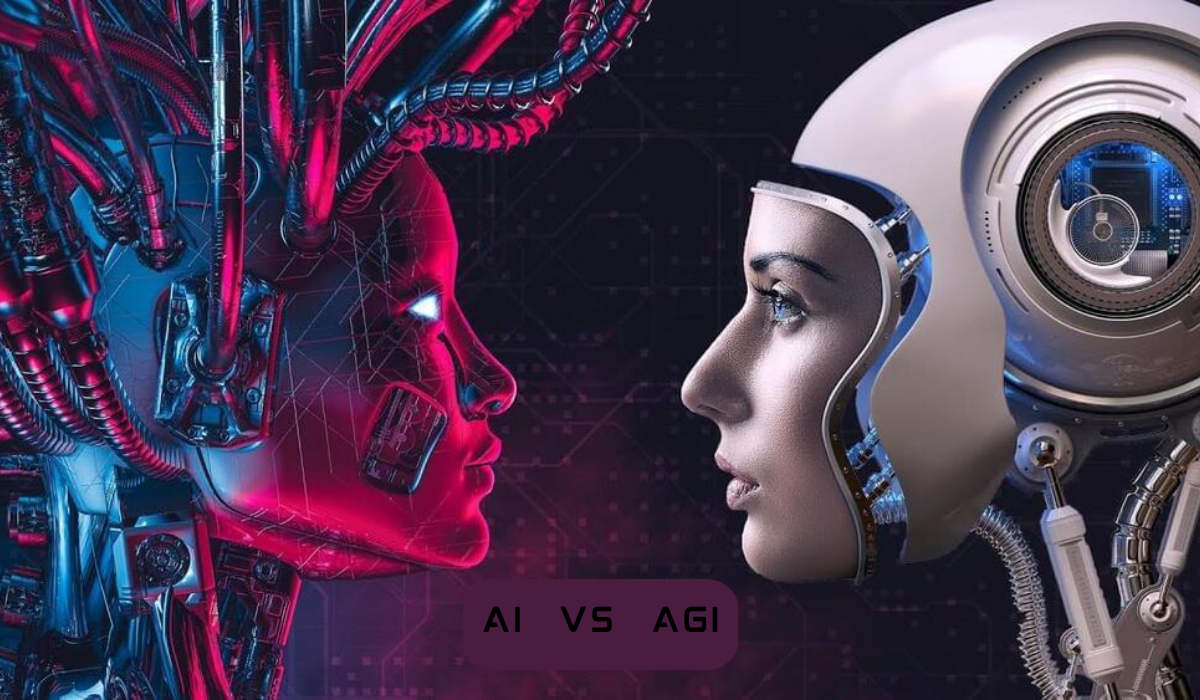
Sam Altman, CEO of OpenAI, stated in a recent interview that he will devote billions of dollars to the advancement of artificial general intelligence (AGI). Though many in the international tech sector are rather uneasy, Altman still advocates for what is regarded as the highest point of AI research. And this is the reason.

Describe artificial general intelligence (AGI)
Artificial General Intelligence (AGI) is the term used to describe a computer program or system that is capable of any intellectual work that a human can perform. This comprises the capacity for cause-and-effect differentiation, abstract thought, reasoning, common sense, background knowledge, and transfer learning, among other skills.
Stated differently, artificial general intelligence (AGI) seeks to mimic human cognitive capacities, enabling it to perform novel tasks, absorb new information, and apply its knowledge in novel ways.
Humans pick up knowledge through experiences, whether they be at home, at school, or somewhere else; from seeing things and conversing with others; through reading books, watching television, or reading articles, among other things. The human brain then uses the data it has gathered to make decisions (often subconsciously) that resolve issues or generate new ones.
The goal of AGI research is to create software or a computer that is capable of performing all of these tasks, as well as everything that a human computer can. Imagine becoming friends with a superintelligent robot that can comprehend everything you say, pick up new skills the same way you do, and even solve issues by generating ideas for them.
What distinguishes artificial general intelligence (AGI) from our current AI?
AGI and narrow AI, the more popular type of AI, differ primarily in their range and capacities.
Narrow artificial intelligence (AI) is made to accomplish particular tasks, such as picture recognition, translation, or even playing chess, where it can surpass humans but is still constrained by predetermined constraints. However, artificial general intelligence (AGI) aims to create a more expansive and versatile type of intellect that is not limited to any one activity, unlike human intelligence.
Because of this, AGI is the pinnacle of artificial intelligence advancement. The goal of AI development has been to increase its capabilities ever since it was first introduced. When ChatGPT was introduced in November 2022, its capacity to generate text responses that resembled those of a human being attracted attention on a worldwide scale.
Since then, as research has been funded by billions of dollars, AI models have gotten better and more complex. In this development, artificial general intelligence (AGI) represents the ultimate frontier.

Is this an original thought?
No. The concept of artificial general intelligence (AGI) originated in the 20th century and was initially introduced in a paper by Alan Turing, who is credited as the founder of theoretical computer science and artificial intelligence.
He established what is now known as the Turing test, a standard for machine intelligence, in “Computing Machinery and Intelligence” (1950). In other words, a computer passes the Turing test for human intelligence if it can converse with a human without being recognized as such.
Even computers weren’t even close to reaching the stage of development known as artificial intelligence when Turing produced this seminal article. Nonetheless, his research sparked extensive conversations over the viability of such devices as well as any possible drawbacks or hazards.
In what ways might artificial general intelligence benefit humankind?
The benefits of artificial general intelligence are numerous. By integrating and analyzing enormous databases, it can, for example, reinvent diagnosis, treatment planning, and personalized medicine in the healthcare industry. This is possible since its capabilities greatly exceed those of people.
Artificial General Intelligence (AGI) has the potential to improve decision-making in finance and business by automating many processes and providing accurate real-time analytics and market predictions.
Because AGI makes it possible to create adaptive learning systems that are tailored to the specific needs of each student, it has the potential to completely transform education. Global access to tailored education could become more accessible as a result.
Artificial intelligence (AI) will be “transformative,” delivering never-before-seen levels of creativity and problem-solving capacity, and will bring about “a lot of productivity and economic value,” according to OpenAI’s Sam Altman in an interview with The Wall Street Journal.
So why are there concerns over AGI?
AGI continues to be a major source of fear for many people despite all of its potential. For instance, the development of e-waste and energy consumption associated with the massive processing power required to develop AGI systems raise concerns about potential environmental effects.
AGI might result in a large loss of jobs as well as a widening socioeconomic divide since people in charge of technology would hold a disproportionate amount of power. Its development may surpass the capacity of countries and international organizations to devise appropriate rules, and it may pose new security risks of a kind we haven’t even considered yet. Furthermore, losing our fundamental human abilities and skills could result from people becoming overly reliant on AGI.
The greatest concern with artificial general intelligence (AGI) is that its capabilities may surpass those of humans, making it challenging to comprehend and anticipate its activities. This might potentially result in a scenario where it grows “too” independent, to the point that people lose all control. Additionally, as is the case with many science fiction films, this could eventually lead to AGI acting against human welfare.
The late Professor Stephen Hawking stated that “the development of full artificial intelligence could spell the end of the human race” in a 2014 interview with the BBC.
Similarly, the “Godfathers of AI,” Yoshua Bengio, Geoffrey Hinton, and Yann LeCun, have frequently cautioned against the disastrous consequences of developing artificial general intelligence (AGI). Hinton has gone so far as to compare the risks of AGI to those of nuclear weapons.
Nowadays, the majority of experts in the field support strict laws to make sure that the advancement of artificial intelligence aligns with human values and safety requirements.
https://youtu.be/LhLyOWoUnDI?si=9y-ycYIigs3cW3Ss



















